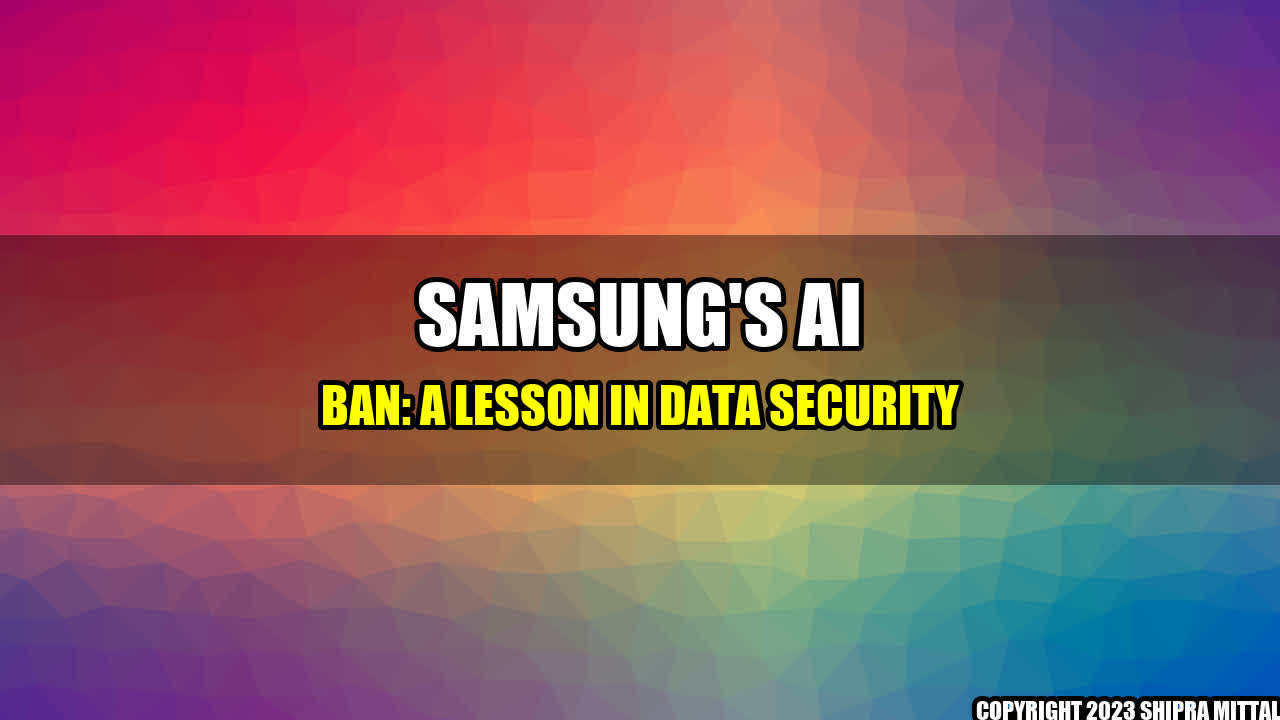
It was a typical day at work for Jane, a customer service representative at Samsung. She was using the company's AI technology to communicate with customers when she received a message that caught her attention. The message was from an unknown sender, and it contained sensitive customer data that Jane had no access to. She immediately reported the incident to her supervisor, who launched an investigation.
The investigation revealed that one of Samsung's AI tools had been hacked, and the sensitive data had been leaked outside the organization. Samsung took immediate action and banned their staff from using AI for the time being, until a more robust data security system was put in place.
Samsung's AI ban is a reminder of the importance of data privacy and security in AI technology. Sadly, it is not an isolated incident.
In 2018, Facebook came under scrutiny when it was revealed that Cambridge Analytica, a political consulting firm, had obtained data from 87 million Facebook profiles without users' consent. The firm used the data to influence elections in several countries, including the US presidential race.
The same year, Marriott disclosed a data breach in which hackers obtained the personal data of half a billion customers.
These examples demonstrate that data leaks and breaches can happen to any company, regardless of its size or industry. They highlight the need for strong and robust data security measures to protect sensitive customer data.
AI technology has the potential to transform industries and improve our lives in countless ways. However, this potential comes with unique challenges, especially when it comes to data security and privacy.
AI algorithms require vast amounts of data to function. This data can include sensitive information such as personal identifiable information (PII), health records, financial information, and more. The challenge is how to ensure that this data is secure and kept private.
Companies must develop strong data security and privacy policies, implement robust data encryption technologies, and regularly test their systems' vulnerability to prevent cyber-attacks. Employees must also be trained on data privacy and security best practices.
#Samsung #AI #dataleak #datasecurity #dataprotection #dataprivacy
Tech & Data Privacy
Akash Mittal Tech Article
Share on Twitter Share on LinkedIn